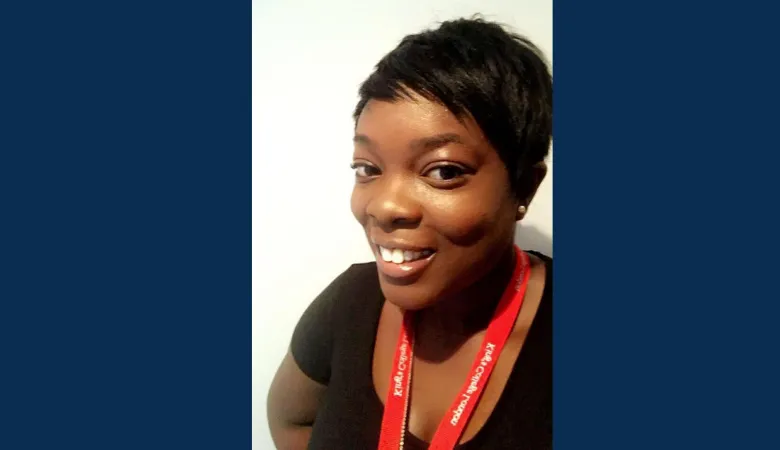08 March 2019
#WomenOfKings - Bahijja Raimi-Abraham
Celebrating and elevating King’s women for International Women's Day.

It's International Women's Day on Friday 8 March – a global day celebrating the social, economic, cultural and political achievements of women. This year's theme is Balance for Better, which calls for a more gender-balanced society. From the board room to the government, media coverage to employment, gender balance is essential for economies and communities to thrive.
To celebrate International Women's Day, we spoke to women from the Faculty of Life Science & Medicine King's about their careers, inspirations and what drives them.
"I hope to see and be part of more translation work with a focus to solve global health challenges in the future"
Dr Bahijja Raimi-Abraham is a Lecturer in Pharmaceutics within the Institute of Pharmaceutical Science based in the School of Cancer and Pharmaceutical Sciences.
What are you proudest of in your career?
I am lucky to have lots of moments in my career to date that I am proud of. I am proud of my TEDx talk which I gave as a Postdoctoral Researcher. I am also extremely proud of my recent achiever which was winning the Outstanding Woman in STEM (sponsored by the Ilesha Trust) 2018 Precious Award.
Why did you decide to go into this field of study/research/work? What would you tell women who want to study in your field?
I started considering an academic career during my undergraduate degree (Pharmacy). After my PhD, I took about a year to decide if I really wanted to become an academic and what that entailed. I learnt a lot during my postdoctoral researcher positions and had the unique opportunity to go on secondment in a different discipline (European Medicines Agency) which was a positive experience which helped to shape my research direction, working practices and confirmed my desire to pursue an academic career.
I believe the blog by Professor Jenny Pickerill about being female in academia really captured the challenges and offered advice for any women who wishes to become an academic irrespective of field. More specifically for women who want to study in my field, I would tell them to be focused, determined, follow your interests as best as you can and be resilient.
How has your field changed since you started, and where do you see it going in the future?
I have noticed that my area of research has become more translational over time which I believe is a good direction for impact and overall patient benefit. I hope to see and be part of more translation work with a focus to solve global health challenges in the future.
